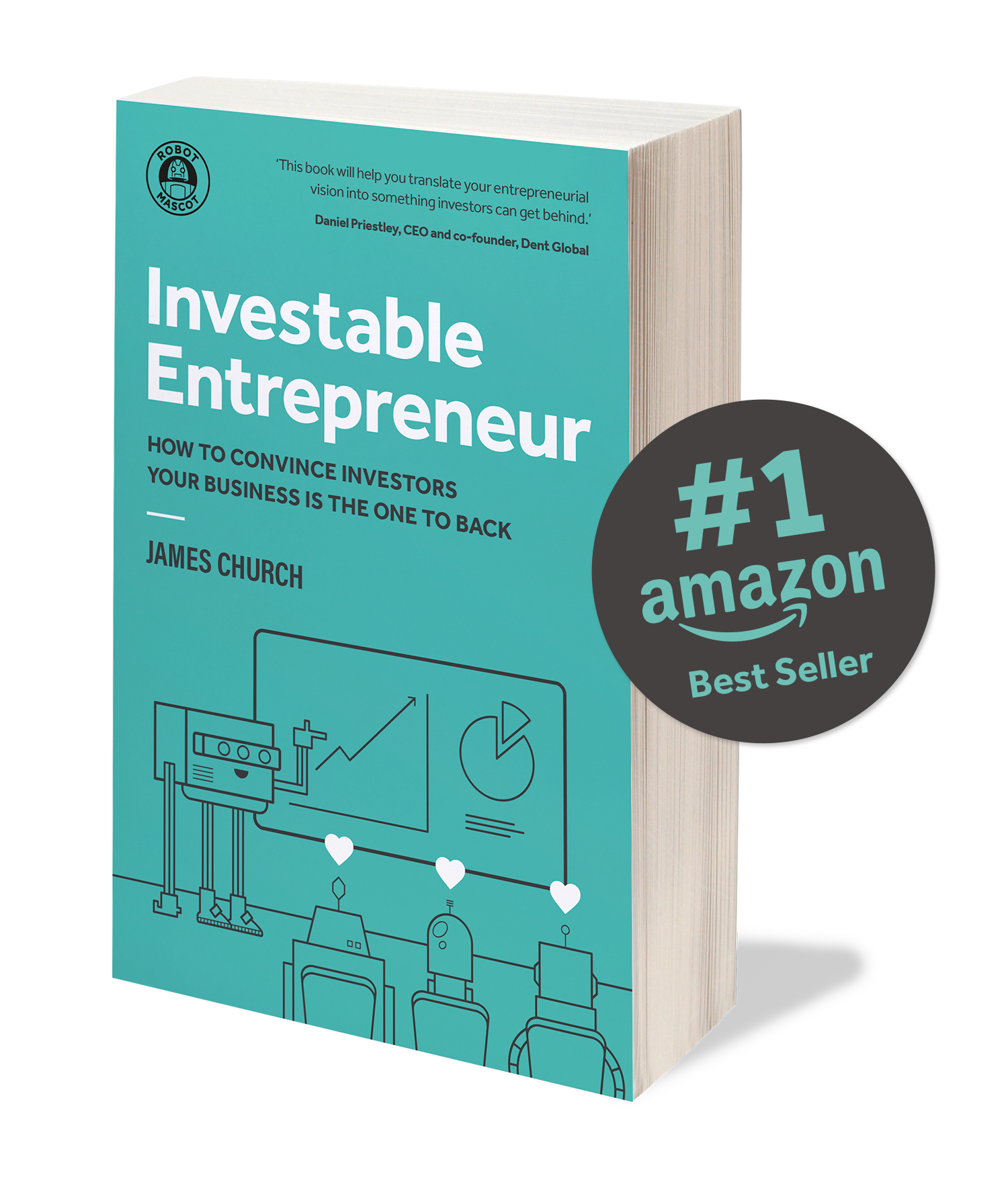

4 Types of Startup Advisor You Need (And Those You Don’t)
30th January 2023
Every investable entrepreneur needs an excellent team of startup advisors around them. When a founder has the right startup advisors in place, it doesn’t only benefit their business’s growth and development; it can also give them a significant advantage during the fundraising rounds.
Why are startup advisors so important?
One. They possess skills and knowledge the founder lacks.
Two. They have valuable experience and connections.
Three. They have a unique perspective on your sector and target audience.
By giving founders the benefit of their own hard-won experience, the best startup advisors empower founders to make better informed decisions. Also, because their expertise shores up the gaps and weaknesses in the founder’s knowledge, startup advisors give the founder the confidence and breathing space to focus on their own strengths.
Related: Why the Wrong Type of Startup Advisor Will Kill Your Chances of Raising Investment
It doesn’t matter whether you’re a sole founder or a co-founding team, you need the very best startup advisors you can find on your side. End of discussion.
But here’s the catch. In our experience, only around 10%-20% of founders have good startup advisors. The remaining 80% of startup founders tend to fall into the following three camps.
FIRST. Founders without startup advisors
Founders who believe they can execute their vision at scale and speed without enlisting anyone else’s help are fooling themselves. If they don’t realise they’re fooling themselves, they’re being massively egotistical. Either way, they’re setting themselves up for failure.
Part of this “I don’t need advisors” attitude comes from the misplaced belief that advisors are only for founders and entrepreneurs who are new to the game, as if looking for advice is some kind of weakness. Far from it. As this Forbes article explains, some of the world’s largest and most high-profile companies retain an advisory board in addition to having a board of directors.
Having the right advisors onside gives founders the helicopter view they’d never be able to gain on their own. As a result, they’ll always have access to fresh perspectives and their performance and odds of success will be dramatically improved.
It’s also important to remember that, when the time comes to start fundraising, investors will expect to see some strategic advisors in place. When they’re faced with a founder who’s going it entirely alone, investors become twitchy. If you’re a founder who’s making them twitchy, it goes without saying that’s not a good thing.
SECOND. Founders with startup advisors ‘in name only’
We’ve lost count of the number of founders who have reeled off a stunning rundown of advisors listed in their pitch and then, after just a little bit of digging, we’ve discovered that – poof! it was all smoke and mirrors and they weren’t really advisors at all. Usually, they’re just somebody the founder once had a chat with or, even worse, they might be someone who has offered to take on a paid Non-Executive Director’s (NED) role post-funding but is providing no actual support to the business right now.
There are so many reasons why startup advisors ‘in name only’ is a disastrous move. Here are the biggest ones:
- If we can uncover the truth about your ‘in name only’ advisors after just a minimal amount of fact-checking, so will your potential investors.
- It’s essential to gain an investor’s trust. If they suspect you’re trying to push a bogus board of ‘in name only’ startup advisors past them, their trust will be broken and they’ll quickly show you the door.
- Alternatively, if they discover the advisors you’ve named are not yet committed to your project or are still on the sidelines about whether you’re worth supporting, they’re definitely not going to be persuaded to hand over their money. After all, if your so-called advisors aren’t prepared to back you, why would any investor invest in you?
THIRD. Founders who have made a poor choice of advisory board
We’ve always encouraged startup founders to harness the power of their network, but inviting ex-colleagues or friends to be on your advisory board is a dangerous thing to do. They might have an impressive background on paper, for example, by having worked in corporate finance or as head of operations for a FTSE100 company, but that doesn’t mean they’ll know how to manage startup finances or understand the importance of agility and dynamism in an early-stage business.
Your startup advisors cannot be generic. They must have relevant experience to your business’s stage of development and sector otherwise they’ll a) provide your company with little or no value, and b) having them on your board will provide no comfort to prospective investors.
If you want to have friends, ex-colleagues, and people with impressive but unrelated backgrounds involved in your startup, let them support you from the sidelines. Never make them advisors unless they are one of the four types of startup advisor that every founder needs.
The four types of startup advisor every founder needs
1. An advisor who understands your target audience
This is the type of advisor who knows your target market better than you do because they’ve walked this road before. That may not necessarily have run a successful business in the same niche as you, but their audience will have been very similar. They’ll be able to give you insider insights to the problems, needs, processes and procurement requirements of your target market, and they’ll help you eliminate your blind spots.
2. An advisor with direct experience in your niche
This type of advisor will be able to give you critical insights into your specific sector. Because they are so familiar with your sector, their advice will help you navigate the space and move your business forwards more quickly. They might even have the connections and ‘influencer’ potential to encourage other advisors or investors to come onboard, because their involvement will be an assurance your startup is worth paying attention to.
3. An advisor who has already founded and scaled a business in a similar sector
This type of advisor brings two advantages:
- They can show relevant entrepreneurial experience.
- They have an invaluable mix of insider knowledge and outsider perspective. That’s because, even though they’ve created and grown their own successful business in a similar sector (so they’ll understand the challenges you’re facing), they’re still able to indiscriminately observe what you’re doing and give you advice from an outsider’s point of view. For a startup founder, who often can’t see the wood for the trees, this type of advisor is invaluable because their experience has taught them ways of seeing the entire forest!
4. An advisor with a technical background in building the type of product or service you’re creating
This type of advisor understands the unique challenges you’ll face with building your product. They won’t only know the product-building pitfalls to avoid, they’ll probably even know some shortcuts and development opportunities you would never have realised without their insight. For example, how the app you’ve devised might be fine-tuned to do even more, or how your technology could be spun-off into another area for added revenue potential.
As a founder, gaining the support of all these four types of startup advisor is essential. At the very least, you should start making a list of potential advisors in each of these categories and reach out to begin a conversation.
Who knows, from that initial discovery chat you might end up forging a relationship that will transition into an advisory position in the future. It will definitely be worth it.
When your fledgling company boasts an advisory board composed of these four startup advisor types, your day-to-day business will be much stronger, and their backing will stand you in excellent stead when you’re finally ready to pitch for investment.
There are many ways to give your potential investors reasons to believe in you, and having the best advisors in your corner is one of them.
What else should you consider when you’re looking for a startup advisor?
Screen startup advisors in the same way you’d vet any other team member
Interview them, check their references, and make sure there won’t be any conflicts of interest (for example, that they’re not already advising a similar company in your sector.)
How will you compensate your startup advisors?
The best startup advisors are worth their weight in gold and no startup advisor will provide their expertise for free. They’ll typically expect an equity stake in your company and sometimes take a salary or monetary meeting and retainer fee.
Be very careful about the amount of equity and type of service package you offer your startup advisors because it could cause problems if you want to make high-profile hires in the future and you’ve given your advisors too big a share. This Startups magazine piece about advisor compensation gives a useful overview of what you should consider.
Don’t get sidetracked by the 80-20 Advisor Rule
Most startup advisors spend 80% of their time focused on logistics and 20% of their time on strategic guidance. Although getting your logistics right is essential, strategy is a critical area for a startup because it sets out where you want to go, how you’re going to get there, and how quickly your startup is going to grow. Strategic guidance is also the area where most advisors excel because they’ve seen it, done it, and know what works and what doesn’t.
To get the best value possible out of your startup advisory board, they should pay as much attention to strategic guidance as they do to logistics and friction reduction. Be wary of hiring startup advisors who are married to the ‘80-20 Advisor Rule’ because strategy won’t be their priority.
Finding the right startup advisors for your business will take patience and hard work but, once you’ve found them, your startup will flourish and you’ll be much better equipped to successfully raise investment.
For everything else you need to know about raising investment, you can download a free copy of our best-selling book Investable Entrepreneur, here.
UP NEXT:
Dealing With Investors: What It’s Really Like
Startup Value Proposition: How to Write One in Five Simple Steps
Learn how to convince investors
Investable Entrepreneur takes you through our winning methodology – the process we use to increase our client’s chances of raising investment by more than 30x.
“This book will help you translate your entrepreneurial vision into something investors can get behind.”
Daniel Priestley, CEO and founder, Dent Global and four times best-selling business author

Keep up to date with what we’re up to via email






Copyright ©Robot Mascot Ltd. All rights reserved.








